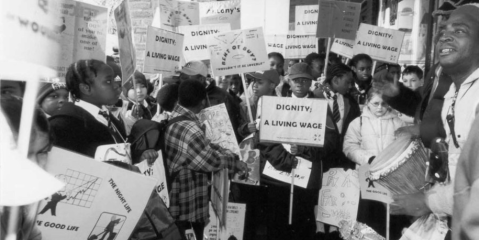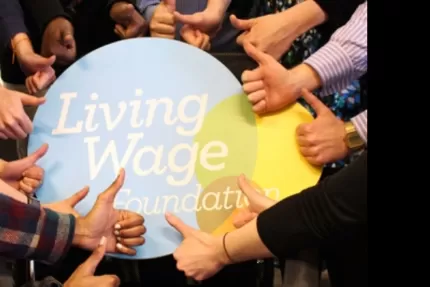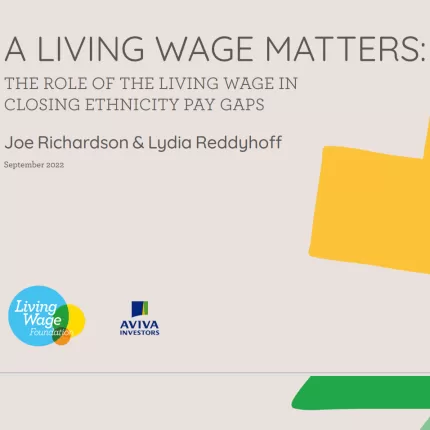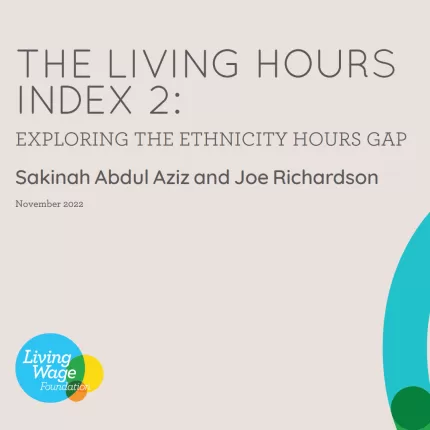The Living Wage Foundation exists to tackle in-work poverty.
We know we cannot be an anti-poverty organisation without
also being an anti-racist one.
We are clear that structural racism permeates every aspect of our society, including the UK labour market. We are clear structural racism also contributes and compounds inequality and experiences of poverty. That means we need to do more to tackle racism and injustice in our work, building a movement of employers standing up for fair pay and conditions, while also focusing on our own organisation and its structures, culture and practices. It is evident that paying the real Living Wage benefits minority ethnic workers as they make up a higher proportion of low paid roles, but the Living Wage can only ever be a starting point on a much bigger journey toward racial equality.
The Living Wage Foundation stands in solidarity with racialised communities and all those affected by racism. To us, solidarity means respecting, listening, supporting and acting. We know we all play a role in perpetuating current norms and more debate is not enough – we need transformative solutions for an anti-racist society. We’re a long way from achieving justice, but we’re committed to the responsibility we have and must be held accountable to by our staff, and our partners, to tackle racism in its many forms.
On this page you will find information about what we are doing, and the links between low-pay, insecure work and race.
What we’re doing
At the Living Wage Foundation, our ambition is to become an anti-racist organisation. We will continue working with our growing network of over 15,000 accredited Living Wage Employers this year with the ambition to become an anti-racist organisation. We do not have all the answers, but we are dedicated to learning, listening and doing the work.
Our areas of focus for 2023-2024 includes:
- Developing further analysis of the impact of low pay and insecure work on minority ethnic people.
- Amplifying the links between race and our work, connecting with employers in our network to learn from and share ideas on becoming more anti-racist.
- Improve diversity of our own people and leadership groups and represent a greater range of voices in our work.
- Embed anti-racism objectives into our core business objectives, making sure to hold ourselves accountable and evaluate impact.
These conversations are ongoing across our movement, colleagues at the Living Wage Foundation and Citizens UK, who are committed to challenging structural racism. We will update this page with more information as plans develop.
What you can do?
We acknowledge that we are not experts here, and are committed to working and connecting with others on anti-racism work. We’d also love to hear from others in our Living Wage movement on what they’re doing to become an anti-racist organisation and collaborate, as we have a better chance of driving change together.
You can also amplify some of the research and analysis on this page through your networks, to demonstrate the links between low-pay, insecure work and race.





